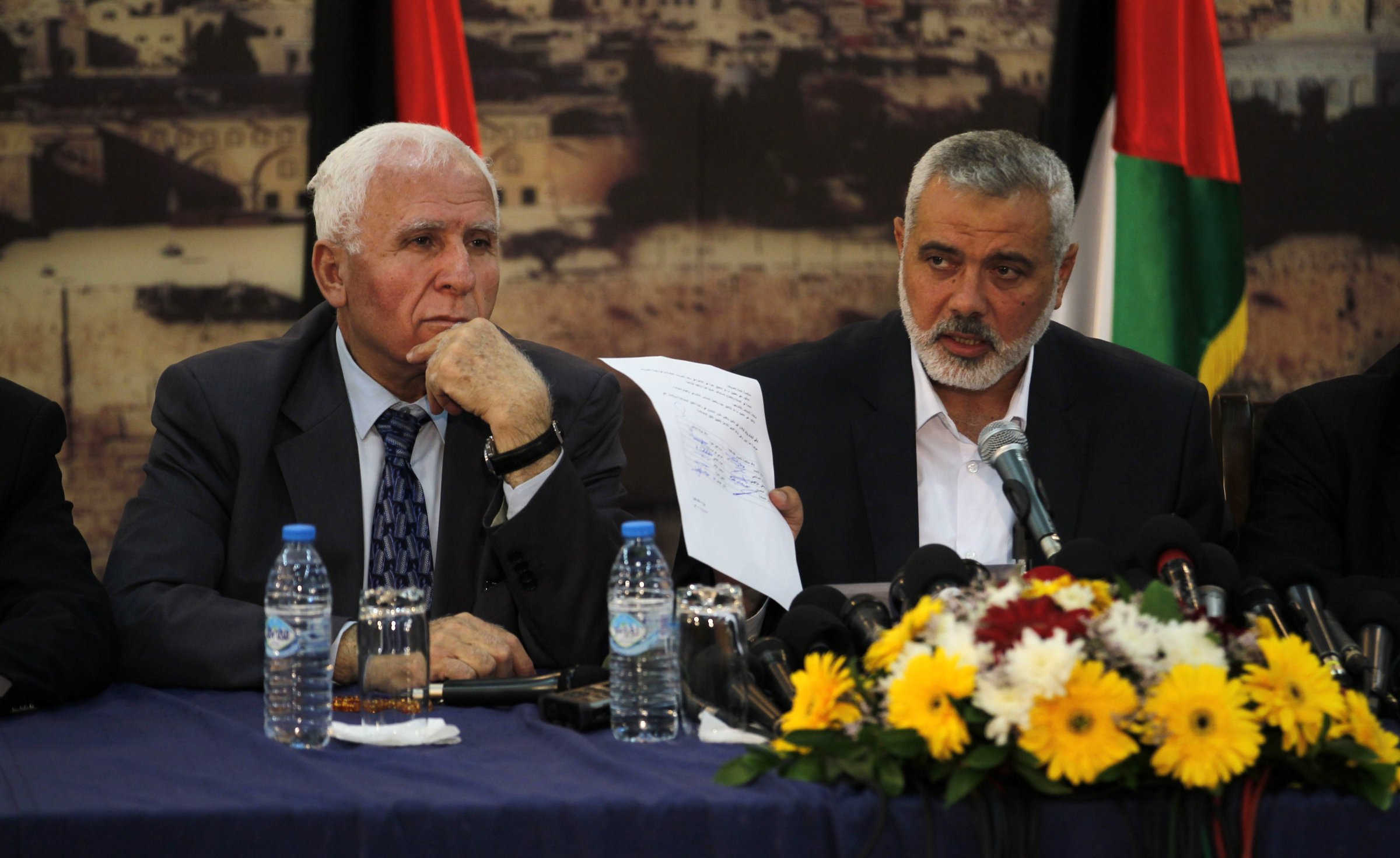
During nine months of negotiations, Israeli officials have constantly questioned our ability to make peace. World leaders visiting Tel Aviv have been faced with rhetorical questions like “Shall we make peace with Gaza or the West Bank?” or statements like “Mahmoud Abbas does not represent all Palestinians.” Last week, after we announced our national reconciliation agreement, Israel contradicted its own argument: suddenly peace was impossible due to Palestinian unity.
During the early 1980s, Israel’s excuse was the Palestinian Liberation Organization’s refusal to recognize Israel. In 1988, we recognized Israel on 78% of historical Palestine, a deeply difficult and historic concession. Twenty-six years later, the number of Israeli settlers within the remaining 22% has tripled. Next, Israel’s excuse was lack of Arab recognition. In 2002, the Arab League introduced the Arab Peace Initiative, offering recognition from 57 Arab- and Muslim-majority countries in exchange for Israel’s respect for UN resolutions. Israel’s response? More settlements. Most recently, the Israeli government came up with a further qualification–that we should recognize Israel as a Jewish state, safe in the knowledge that this could not be accepted. Rather than being afraid of not being recognized, it seems Israel is afraid of recognition.
Today, Netanyahu and those representing him, including Lapid, Ya’alon, Lieberman, Bennett and Ariel, are creating a new excuse to avoid the necessary decisions for peace. This Israeli government, which continues its settlement activities all over Palestine, is trying to blame national reconciliation for its own failure to choose peace over apartheid.
MORE: Yair Lapid: Why I Voted in Favor of Suspending Peace Negotiations With the Palestinians
First and foremost, reconciliation is an internal affair. Not a single party in Netanyahu’s government has recognized Palestine. Nor have we asked them to. Political parties do not recognize states. Governments do.
Secondly, reconciliation and negotiations are not mutually exclusive. Reconciliation is a mandatory step in order to reach a just and lasting peace. The agreement ratifies the PLO’s legitimacy to negotiate with Israel, honors all Palestinian commitments and obligations towards international law and previous agreements and calls for the formation of a national consensus government comprising independent professionals. This government is not going to negotiate with Israel: its sole mandate will be to prepare for elections, provide services and build institutions.
Palestinian reconciliation can be rejected only by those who aim to perpetuate the status quo. This is precisely what the government of Israel has been doing during nine months of negotiations: killing 61 Palestinians, advancing more than 13,000 units in Israeli settlements, conducting almost 4,500 military operations on Palestinian land, demolishing 196 Palestinian homes and allowing more than 660 settler terror attacks against Palestinians.
Being consistent with its policies on the ground, Netanyahu’s government has refused to recognize the 1967 border or even put a map on the table proposing Israel’s idea of its final borders. Netanyahu has ensured that he is unable to do this by surrounding himself with the most extremist sectors in Israel, including the settler movement, from which he selected his foreign minister, housing minister and the Knesset speaker. In fact, 28 out of 68 members of his government reject the two-state solution entirely, while others “accept it with reservations,” meaning something very different to two states as stipulated under international law. Israel’s claim that negotiations have been halted due to Palestinian reconciliation is completely disingenuous.
Frankly, it is difficult to understand how anyone could expect us to negotiate with such a government. And yet we have, in good faith, offering concession after concession for the sake of peace. Once again, we have held up our end of the bargain. Once again, the Israeli government has not. The truth is simple: Israel refuses to negotiate sincerely because, as long as the status quo is so beneficial to it, Israel has no interest in a solution. Without firm signals from the international community, Netanyahu’s occupation and colonization policies are incentivized.
With Palestine’s new international status, we will continue shaping our country as a peace-loving nation that respects human rights and international law, a commitment already assumed during the announcement of national reconciliation. This includes our right to make use of international forums in order to end Israeli violations and achieve the fulfillment of our long overdue rights.
Meanwhile, the ruling coalition of Israel should stop wasting its energy on excuses and start realizing that apartheid is not a sustainable option. Israel’s rejection of Palestinian national unity has little to do with Hamas and a lot to do with its own unwillingness to do what is needed for a just and lasting peace.
Dr. Saeb Erekat is a member of the Palestinian Liberation Organization Executive Committee and Head of the Palestinian Negotiations Team.
More Must-Reads from TIME
- Donald Trump Is TIME's 2024 Person of the Year
- Why We Chose Trump as Person of the Year
- Is Intermittent Fasting Good or Bad for You?
- The 100 Must-Read Books of 2024
- The 20 Best Christmas TV Episodes
- Column: If Optimism Feels Ridiculous Now, Try Hope
- The Future of Climate Action Is Trade Policy
- Merle Bombardieri Is Helping People Make the Baby Decision
Contact us at letters@time.com